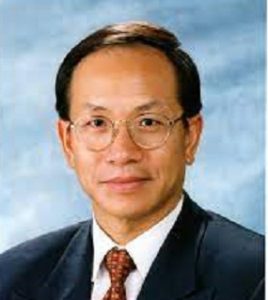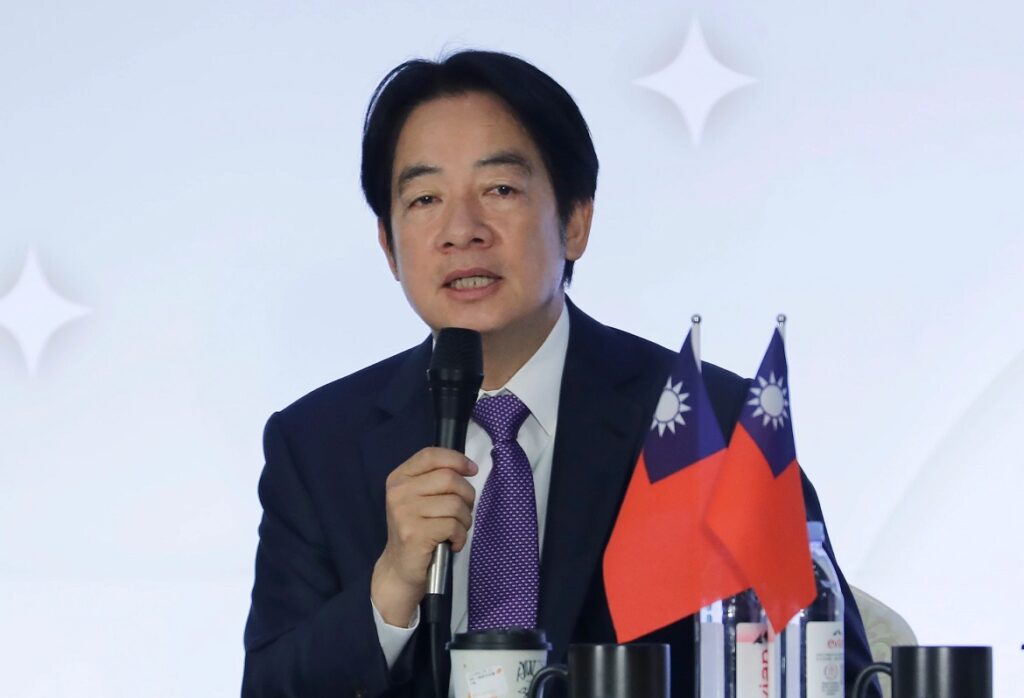By Andrew K P Leung
Beneath the surface of the newly-won unprecedented third-term presidential election by Taiwan’s independence-prone Democratic Progressive Party (DPP), two critical sets of dynamics are at play.

First, only two days after the election, the Pacific Island nation of Nauru decided to switch diplomatic recognition from Taipei to Beijing, reducing the dwindling number of Taiwan’s diplomatic allies to 12 around the world. Taiwan has lost over half of its diplomatic allies over the past two decades, thanks to China’s economic attractions.
Second, a 2024 report in the New York Times found Taiwan people’s growing doubts about America’s steadfastness to defend the island, despite Washington’s arm sales to build up Taiwan’s self-defense and recent clearer verbal assurances. Cognizant of US current performance over Ukraine and Israel, their faith in America is plummeting. Only 34 percent of respondents to a poll saw the United States as a trustworthy ally, down from 45 percent in 2021.
Notwithstanding failure to capture a majority in the legislature, president-elect William Lai Ching-te has been known as an “obstinate Taiwan-independence worker”, persistently rejecting the “1992 Consensus” underpinning the “One China” principle. Shortly before the election, he said there was ‘no need to declare independence as Taiwan is already a sovereign and independent country”.
Questions begin to be asked if peace and stability in the Taiwan Strait could be maintained in coming years and whether the idea of achieving unification by 2049, the centenary of the People’s Republic of China, remains realistic.
As of June last year, according to a long-running poll by Taiwan’s National Chengchi University, only about 6 percent of Taiwanese surveyed supported either unification or independence as soon as possible, while nearly 88 per cent wanted to maintain the status quo.
In their 2023 book US-Taiwan Relations: Will China’s Challenge Lead to a Crisis, authors Ryan Hass, Bonnie Glaser and Richard Bush expound on the official US position on Taiwan. America’s one-China policy is guided by the Taiwan Relations Act (TRA), three joint communiques and “six assurances”. The TRA is now placed first to signify firm support for Taiwan.
The Taiwan Relations Act authorizes arming Taiwan to defend against any non-peaceful solution of the Taiwan question. The three joint communiques confirm the normalization of relations with Beijing under the one-China policy. First conveyed by the Reagan administration, the “six assurances” for Taiwan explain that the United States had not taken any position on Beijing’s sovereignty over Taiwan, would not play a mediation role and would not end arms sales to Taiwan any time soon.
The authors stress that America’s policy is designed to preserve Taiwan’s democratic success story and the credibility of America’s security commitments without triggering conflict, while providing the time and space for an eventual peaceful solution that is acceptable to Taiwan’s people. Accordingly, Taiwan is to be accorded all the elbow room it needs as a flourishing democracy, where independent nationhood is not a prerequisite.
An internal set of State Department “contact guidelines” define loosely what interactions between the United States and Taiwan governments are permitted and what are unofficial contacts. Such guidelines are sometimes at variance with Beijing’s position. Under America’s constitution, Congress is not bound by this guideline, resulting in controversies like the last Nancy Pelosi Taiwan visit.
Taiwan has become a globally important strategic asset by way of its dominance in high-end semiconductor chips – the new “oil” of the Fourth Industrial Revolution that is redefining commerce, human interaction and geopolitics.
Perhaps more importantly, as Howard French points out in Foreign Policy (January 2024), if China were to take over the island, its navy and other forces would have free rein in the Western Pacific eclipsing U.S. influence and power in that important theater, with all that implies.
It’s no wonder that the United States is arming the island into a “military porcupine” in addition to “Freedom of Navigation Operations” (FONOP) naval patrols in the South China Sea, including the Taiwan Strait.
With ongoing US-China rivalry, the “Taiwan card” is likely to be played over and over again, viewing the island as an anti-Beijing “unsinkable aircraft carrier”.
More countries, not limited to America’s allies, are also likely to be proactively involved in defending Taiwan as a semiconductor-supply-chain insurance policy.
In Beijing’s eyes, with Taiwan being assisted to play a more and more prominent role as a political entity independent from Mainland China, the One China Policy risks being gradually hollowed out in all but name.
Beijing enacted its Anti-Secession Law in 2005. A panoply of military assets has since been deployed to deter Taiwan’s de jure independence, such as “aircraft-carrier killer” missiles, and assets with “anti-access and area denial” capabilities.
China has the world’s largest naval fleet, with three aircraft carriers and fortified islands in the South China Sea. Still, should push comes to shove, any full-scale amphibious military operation would be a hazardous enterprise, risking a regional, if not world, war. In particular, the 130 km-wide Taiwan Strait is almost four times the width of the English Channel, and Taiwan has very few sites suitable for coastal amphibious landings.
Nor would a full-fledged blockade of Taiwan be a less perilous operation, considering America’s regional network of military alliances, such as the Quadrilateral Security Dialogue (with Japan, Australia and India), the Aukus nuclear submarine pact (with Australia and Britain) and the defense partnership with Japan and South Korea, not to mention the support of NATO members such as France and Germany.
Beijing has published three White Papers on Taiwan, all stressing the preference for peaceful unification, with military option as the very last resort.
Cross-strait people-to-people exchanges are increasing. One to two million Taiwanese are living and working on their businesses on the Mainland. Cross-strait tourism on both sides continues to flourish. More Taiwanese film directors, actors and actresses are making their cut on the Mainland, as are more Taiwanese entrepreneurs establishing their start-ups on the Mainland.
The majority of Taiwan people don’t want to de jure independence for its own sake. Unification has become very unpopular because the vast majority of Taiwanese deeply cherishes their political system and way of life, according to analysis of a team of experts of the Brookings Institution, a Washington D.C.-based think tank.
The Hong Kong model of the “One Country Two Systems” formula initiated by the late Chinese leader Deng Xiaoping has lost traction amongst Taiwan people in recent years. As Richard Bush suggested in his Brookings commentary, Beijing has yet to offer the Taiwanese people something so appealing that they don’t want to refuse.
It is clear that to induce Taiwan to come to the negotiating table, Beijing needs to spell out a more liberal and accommodative constitutional package preserving not only Taiwan’s way of life but also their political system, including free and fair elections for their leader and legislature, along with measures to help the island expand its presence in the Mainland and in the international arena, playing a full role as Taiwan (China), including membership of United Nations organizations not requiring independent nationhood.
As years go by, if the China Dream of peaceful unification is not to slip away forever, Beijing may have to think outside the box to sweeten the carrot for Taiwan’s people.
File in PDF of the article with hyperlinked footnotes:
Why Beijing needs to sweeten the carrot to entice Taiwan’s people towards peaceful unification.pdf
Author: Andrew KP Leung – International and Independent China Strategist. Chairman and CEO, Andrew Leung International Consultants and Investments Limited. He previously served as director general of social welfare and Hong Kong’s official representative for the United Kingdom, Eastern Europe, Russia, Norway, and Switzerland.
(The views expressed in this article belong only to the author and do not necessarily reflect the editorial policy or views of World Geostrategic Insights).
Image Source: AP







